Top CS graduates awarded Jonathan Gross Prize
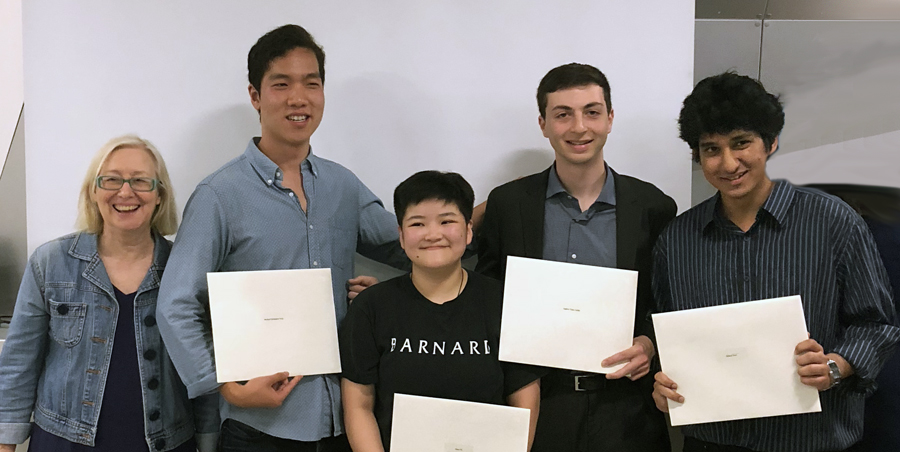
![]() The Jonathan Gross Prize honors students who graduate at the top of their class with a track record of promising innovative contributions to computer science. Five graduating computer science students—one senior from each of the four undergraduate schools and one student from the master’s program—were selected to receive the prize, which is named for Jonathan L. Gross, the popular professor emeritus who taught for 47 years at Columbia and cofounded the Computer Science Department. The prize is made possible by an endowment established by Yechiam (Y.Y.) Yemini, who for 31 years until his retirement in 2011, was a professor of computer science at Columbia.
The Jonathan Gross Prize honors students who graduate at the top of their class with a track record of promising innovative contributions to computer science. Five graduating computer science students—one senior from each of the four undergraduate schools and one student from the master’s program—were selected to receive the prize, which is named for Jonathan L. Gross, the popular professor emeritus who taught for 47 years at Columbia and cofounded the Computer Science Department. The prize is made possible by an endowment established by Yechiam (Y.Y.) Yemini, who for 31 years until his retirement in 2011, was a professor of computer science at Columbia.
![]() Andy Arditi, Columbia College
Andy Arditi, Columbia College
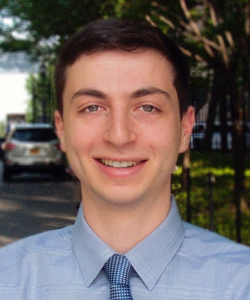
“Developing computational solutions to complex problems like language processing or facial recognition is amazingly interesting and gives us insight into the nature of intelligence.”
Andy Arditi’s plan to major in a math-related field—mathematics, economics, or physics—changed in his sophomore year when he took his first CS class. Exposed to programming for the first time, he knew immediately computer science was for him. Working on programming assignments, he wouldn’t notice the hours passing. “I would be so engaged and motivated to solve whatever problem I was working on that nothing else mattered.” As he took more CS classes, he became increasingly intrigued with how mathematical and statistical modeling can solve complex problems, including those requiring human-like intelligence.
He chose Columbia for a couple of reasons. “I wanted a place where I could both be challenged academically, and at the same time keep up my jazz saxophone playing. Columbia, having an amazing jazz performance program filled with super talented musicians and being located in the jazz capital of the world, was a perfect fit.”
In August, he starts work at Microsoft in Seattle as a software engineer with the idea of one day returning to academia to pursue a master’s or PhD in a field of artificial intelligence.
![]()
Jeremy Ng
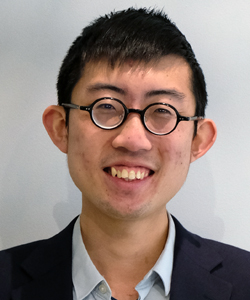
“I was drawn most immediately to the rigor of computer science—a method will typically return the same output on a given input.”
Jeremy Ng’s first two college years were spent in France studying politics, law, economics, and sociology as part of the Dual BA Program between Columbia University and Sciences Po. Not until his junior year did he take his first computer science class—Introduction to Computer Science with Professor Adam Cannon. He so enjoyed the class that he signed himself up the next semester for the 4000-level Introduction to Databases with Professor Luis Gravano.
As a self-described language nerd who reads grammar books for fun, Ng fondly remembers taking Natural Language Processing with Professor Kathy McKeown. He describes the class as “eye-opening” because it gave him a chance to see computational approaches applied to a subject he’d previously studied from a more historical and sociological perspective.
Currently Ng is interning at the United Nations Office for the Coordination of Humanitarian Affairs (OCHA). “Humanitarian actors in conflict zones or hard-to-reach areas generally lack the resources to report detailed data and statistics; at the same time, these data are used to secure billions of dollars in humanitarian financing from donors. The challenge is producing meaningful trends and insights from a set of very limited information, without sacrificing rigor or defensibility—a challenge I very much enjoy.”
In September, he will take up a macroeconomic research-related role at the investment management firm Bridgewater Associates; his long-term goal is to work in development finance, using data to evaluate the potential impact of humanitarian and development projects in under-served regions such as Central Asia, where he worked previously as a Padma Desai fellow.
![]()
![]()
Jenny Ni, Barnard College
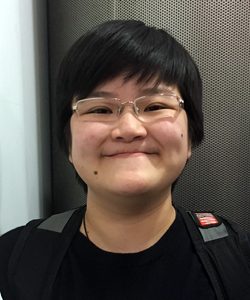
“In my first CS class, I immediately was impressed by the logics of coding and how much a simple program could do.”
Enrolling in classes at both Barnard and Columbia, Jenny Ni took full advantage of the wide variety of resources and challenging academic curriculum offered by the two schools, and followed her curiosity. At Columbia she took her first CS class and discovered she enjoyed programming, and become curious to learn more about the field and its applications to other, especially non-STEM, fields. In particular, she enjoys thinking about the interesting and novel ways new developments in CS can be integrated with archaeology. “It’s amazing reading about how techniques like LIDAR and drone surveying are changing the ways archaeology is done.” She graduates with both a Computer Science major and an Anthropology major from Barnard’s Archaeology track.
Over the next year, she will be applying to Archaeology research positions and PhD programs. Her goal is to apply computer science technology to expand archaeological methods.
![]()
Nishant Puri
“Artificial intelligence—specifically deep learning—is poised to have a revolutionary impact on virtually every industry.”
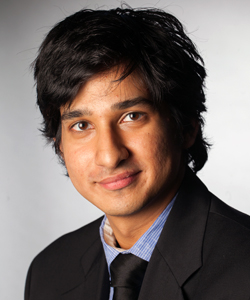
Nishant Puri should know, having spent two years at the data analytics company Opera Solutions where he built personalized predictive models on vast streams of transactional data. The experience so spurred his interest in machine learning he decided to pursue a second post-graduate degree. (His first was in applicable mathematics from the London School of Economics, where he received distinction in all his papers.)
He chose Columbia for a master’s degree in machine learning both for its faculty and the flexibility to specialize in his area of interest. “The program aligned with my personal objective of building on my knowledge of Computer Science fundamentals acquired from my previous work experience, with a specific focus on machine learning. I was able to take various courses that linked well with one another for a comprehensive understanding of the field.”
Puri received his Master’s last fall and is now working as a Deep Learning software engineer on Nvidia’s Drive IX team. “We are using data from car sensors to build a profile of the driver and the surrounding environment. With deep learning networks, we can track head movement and gaze, and converse with the driver using advanced speech recognition, lip reading, and natural language understanding. It’s a new and really exciting area and it’s great to be part of a team that’s helping drive progress.”
![]()
Michael Tong
“I was amazed by how powerful coding could be to solve all kinds of problems.”
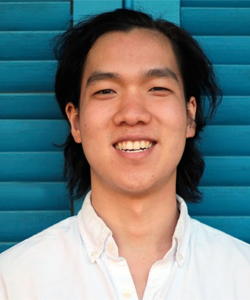
Michael Tong, Columbia Engineering’s valedictorian, came to Columbia intending to study mathematics. “You learn things from a very general perspective, but when you apply it to something specific these seemingly complicated definitions actually encode very simple and intuitive ideas.” But yet he declared for computer science. “When I took my first computer science class freshman year, Python with Professor Adam Cannon, it was like this whole new world opened up: I had no idea you could write code to do all these different things!”
In time, he gravitated toward theoretical computer science, which is not surprising given its close relationship to math. “It is cool when math techniques are used in computer science, to see, for instance, how basic algebraic geometry can define certain examples of error correcting codes. Studying theoretical computer science, especially complexity theory, makes me feel like I have not left the world of math.”
After graduation, Tong will work at Jane Street, a technology-focused quantitative trading firm, before applying to math doctoral programs.
Posted 05/16/18

